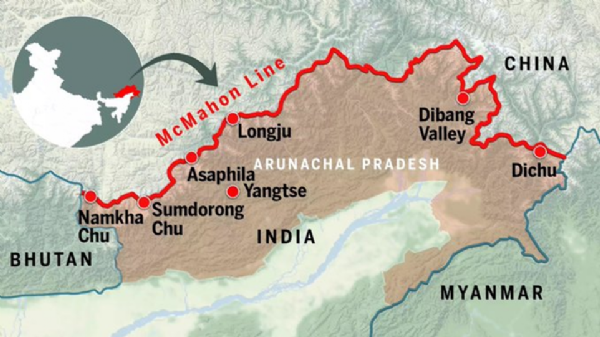China persists in its belligerent stance, exemplified once more by its recent release of a list of names for places in Arunachal Pradesh. This maneuver, however, is mere folly. New Delhi has unequivocally reaffirmed the obvious: the renaming exercise in no manner alters the fact that Arunachal Pradesh has been, is, and will always be an integral part of India. Beijing's assertion of control over the region, which it labels as 'south Tibet,' exists only within the realm of an expansionist fantasy. Moreover, it underscores China's lack of intent to mend ties with India.
While China demands respect for its territorial integrity from the international community, it fails to reciprocate this principle in its dealings with other nations. This double standard is evident in the numerous border and maritime disputes it has with neighboring countries. By asserting a claim over Arunachal Pradesh, China reveals its perception of India as a nation amenable to coercion. Therefore, it may be time for India to reassess its commitment to the 'One China' policy, especially as our practical collaboration with the Republic of China, or Taiwan—tragically affected by a massive earthquake yesterday—is expanding.

India's stance against China has been evolving. Since 2010, India has refrained from mentioning the 'One China' policy in joint statements and official documents. Beijing's outright rejection of a reciprocal 'One India' policy in 2014 further diminishes the need for New Delhi to navigate this issue delicately. China remains India's strategic rival and a security concern, evident through PLA incursions and other provocations.
New Delhi should explore and facilitate high-level political and technical visits with Taiwan. The latter is a semiconductor giant and India is already seeking bilateral cooperation in this sector. There’s no need to look over our shoulder at Beijing when engaging Taipei. India can start by offering earthquake relief assistance to Taiwan. China cannot dictate our Taiwan policy.
Supply Chain Challenges due to earthquake Opportunity India
The recent earthquake off Taiwan's east coast highlights the risks of concentrating chip-making capacity in one territory. While initial reports suggest no immediate impact on supply chains, the incident underscores the need for diversification. Chipmakers are already accelerating plans to diversify beyond Taiwan due to factors like the Covid outbreak and tensions with China. India, with its ambitions in chip manufacturing, offers an interesting proposition.
‘3-Body Problem’ Is Showcasing China’s Distrust of the West
Science fiction has always been treated with suspicion by Beijing, and this series is no different.
The first scene in the new Netflix series 3-Body Problem opens with a shocking sequence. A prominent scientist is beaten to death by paramilitary Red Guards, a depiction of recent history that still remains taboo in China, playing out a brutal scene from the Cultural Revolution in the 1960s. His crime? A belief in the theory of relativity.
From those very first few moments, it is a wild ride, at times almost hallucinogenic. But there is a wider, more urgent issue the series shines a light on: The China that President Xi Jinping displays to the world is not the only China that exists. It is a complex, multi-layered place — much like the show itself — that often confounds expectations. The Chinese Communist Party has tried to own the definition of what it means to be Chinese, and has been exporting it around the globe. This series showcases a different, stranger world, created by a Chinese author — and audiences around the globe are responding to it.


No comments:
Post a Comment